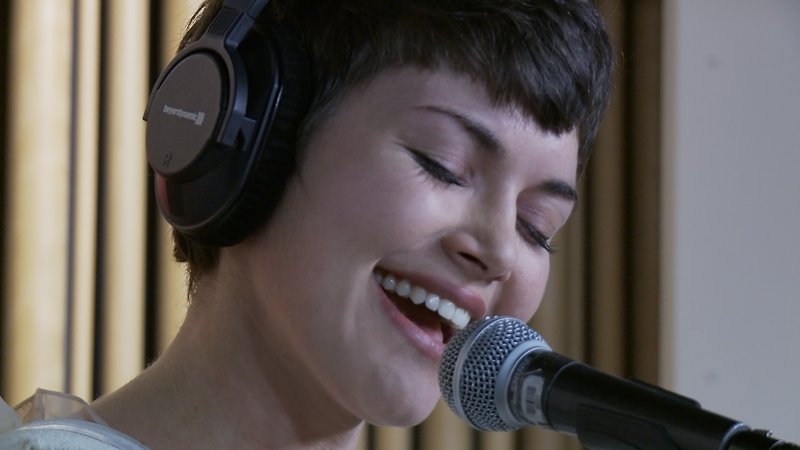Nicolas Philibert’s funny, affectionate doco about dedicated individuals at work in Paris’s massive Maison de la Radio is an audio-visual hymn to broadcasting artistry, and a resounding endorsement of French public service radio.

Hearing is believing in this captivating behind-the-scenes portrait of French public radio.
Screened as part of NZIFF 2013
The House of Radio 2013
La Maison de la Radio
Vive National Radio! Nicolas Philibert’s funny, affectionate montage of dedicated individuals at work in Paris’s massive Maison de la Radio is an audiovisual hymn to aural artistry and delight. A gleefully jaded news editor flips through the day’s grisliest headlines, a drama producer fine-tunes her actors like musical instruments, a chatty phone operator shrewdly susses out talkback callers, a Tour de France commentator rides pillion, Umberto Eco considers his next word, an Aussie hip hop band makes world music on Paris radio: the breadth of civilisation emanating from within these walls, and out into the world at large, seems infinite and exhilarating.
Philibert is well established as a savvy chronicler of abundant life within closed environments (To Be and To Have) and the wealth of communication generated by sensory deprivation (In the Land of the Deaf). He spent months filming in the corridors, offices and studios of the building that houses several of France’s premier public radio stations, then distilled his observations into a typical day in the life – and an enchanted homage to intelligent life on the airwaves.
“There’s a morning-to-night arc in the background, with the film kicking off from a 7am news broadcast and ending in the small hours of the next morning as the following day’s news stories are discussed. But it’s not a rigid frame: most of the time, Philibert is more concerned with emotional cadence of a film that alternates humour and passion, mild on-air flirtations and poignant illustrations of the power of the human voice to warn, charm, inform or entertain.” — Lee Marshall, Screendaily